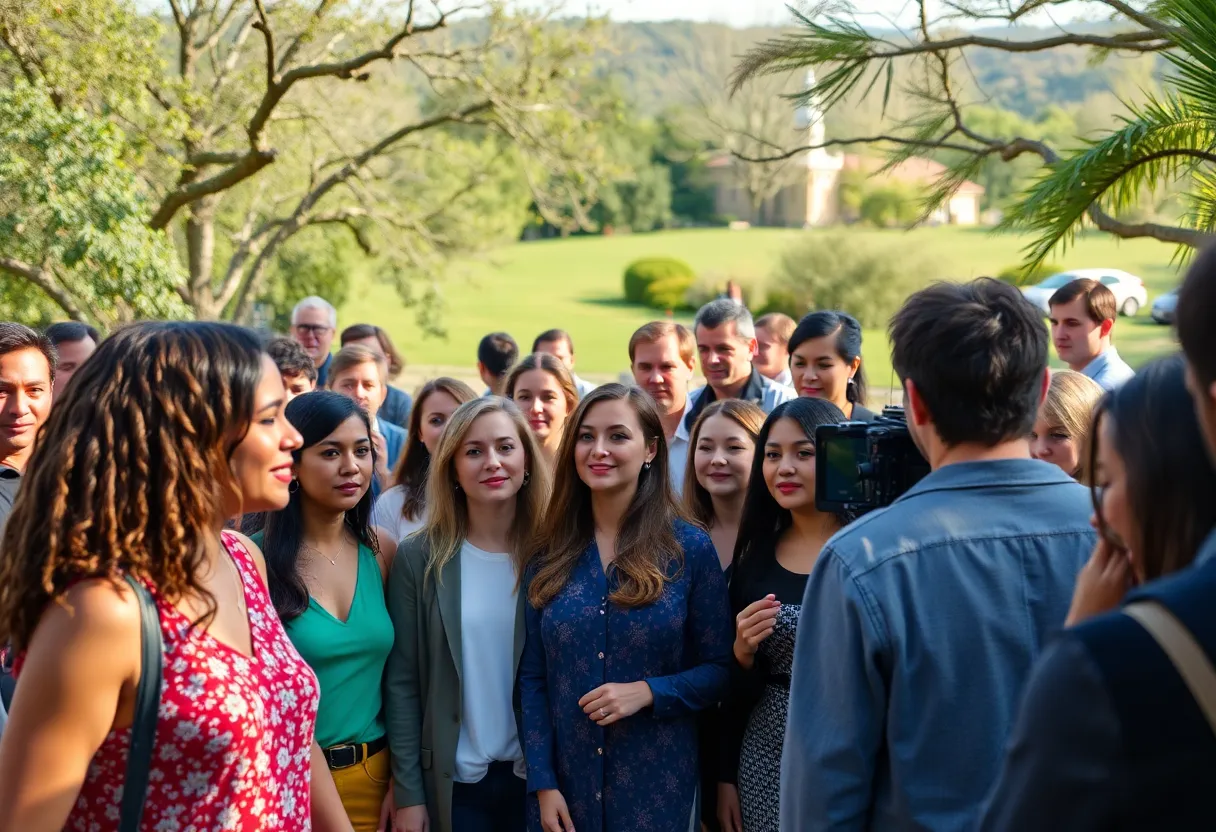News Summary
Donald Trump has signed a series of executive orders aimed at reshaping higher education in the U.S., focusing on diversity and foreign funding disclosures. His administration proposes to cut federal funding to non-compliant universities, while also pushing back against diversity initiatives. Amidst ongoing legal challenges, Trump’s plans include support for historically Black colleges. The political landscape is poised for change as the 2024 elections approach, with candidates vying for the favor of influential HBCUs.
Trump Restructures Higher Education with Sweeping Executive Orders
In a bold move, Donald Trump recently signed a series of executive orders that aim to reshape the landscape of higher education in the United States. The focus of these actions appears to be firmly on tackling diversity and inclusion initiatives within universities.
The Core of the Orders
One of the key aspects of these orders is enforcement regarding the disclosure of foreign gifts to universities. This move is part of a larger agenda to hold educational institutions accountable for their funding sources. Trump’s administration has expressed concern that universities may be unduly influenced by foreign entities.
The Controversial Road Ahead
Describing accreditation as a “secret weapon,” Trump suggested that some universities are overrun by what he called “Marxist maniacs and lunatics,” which has stirred significant debate. Will Scharf, serving as White House staff secretary, commented that accreditors have been swayed by what is referred to as “woke ideology” rather than focusing on genuine merit.
Education Secretary’s Perspective
Education Secretary Linda McMahon chimed in, stressing the importance of identifying applicants based on their true potential rather than factors that may detract from merit-based admissions. Since taking office, Trump’s administration has consistently pursued changes intended to alter the dynamics within higher education.
Funding Implications
Of particular note is the proposal to cut billions in federal funding for universities that do not comply with the administration’s demands. This indirect pressure has raised alarms among many in the academic community, leading over 150 university presidents to criticize these actions as unprecedented government overreach and interference.
Legal Challenges
In response to potential funding cuts, Harvard University has initiated legal action against the government, shedding light on the contentious atmosphere created by these policies.
Targeting Diversity and Inclusion
Additionally, the executive orders seek to investigate what the administration describes as “unlawful discrimination” in higher education related to diversity, equity, and inclusion initiatives. Trump’s stance involves a clear departure from supporting such initiatives, indicating a desire for the U.S. to disengage from what he calls the “diversity, equity, and inclusion cult.”
Support for Historically Black Colleges
Despite his criticisms of broader diversity initiatives, Trump has also put forth a plan aimed at bolstering historically Black colleges and universities (HBCUs). This initiative includes creating a presidential advisory board dedicated to addressing challenges related to funding, affordability, and retention rates for these institutions.
Looking Ahead to 2024
As both Trump and Vice President Kamala Harris prepare for the upcoming presidential elections, they are keen to appeal to HBCUs and their communities. Historically Black colleges generate nearly 20 percent of Black graduates and play an essential role in promoting voter education, making their influence significant in the electoral process.
Reserving Support
HBCU leaders have expressed their desire for more definitive commitments regarding funding and policy support from each candidate. In the past, Trump did authorize millions in funding for these colleges, but he has also been criticized for proposing cuts to federal programs aimed at helping them.
A Contrast in Priorities
The Biden-Harris administration claims to have exceeded funding levels for HBCUs during their term, suggesting an ongoing competition for the favor of these influential institutions. HBCU leaders remain cautious about officially endorsing either candidate, keeping their focus on the needs of their institutions instead.
International Students and Beyond
Moreover, Trump’s administration faced backlash for imposing policies that have made it more challenging for international students to attend U.S. colleges. Changes in visa regulations could significantly impact smaller colleges that depend heavily on tuition fees from these students.
A Crucial Moment for Higher Education
As the 2024 election approaches, the engagement of HBCU leaders with candidates could shift, weighing their institutions’ future against political relations. While the current administration has called for significant educational reforms, concerns about the effects these policies may have on the future of higher education in the U.S. persist.
With a landscape that constantly evolves, the intersection of politics and education remains a critical issue for students, educators, and communities alike.
Deeper Dive: News & Info About This Topic
- The Guardian: Trump Restructures Education
- Forbes: Trump’s Second Term and Education
- Politico: Harris and Trump on HBCU Support
- Inside Higher Ed: Trump’s Funding Freeze Concerns
- Higher Ed Dive: 2024 Candidates on Education Issues
- Wikipedia: Historically Black Colleges and Universities
- Google Search: Trump education policy
- Google Scholar: Trump education reform
- Encyclopedia Britannica: Higher Education
- Google News: Trump education







